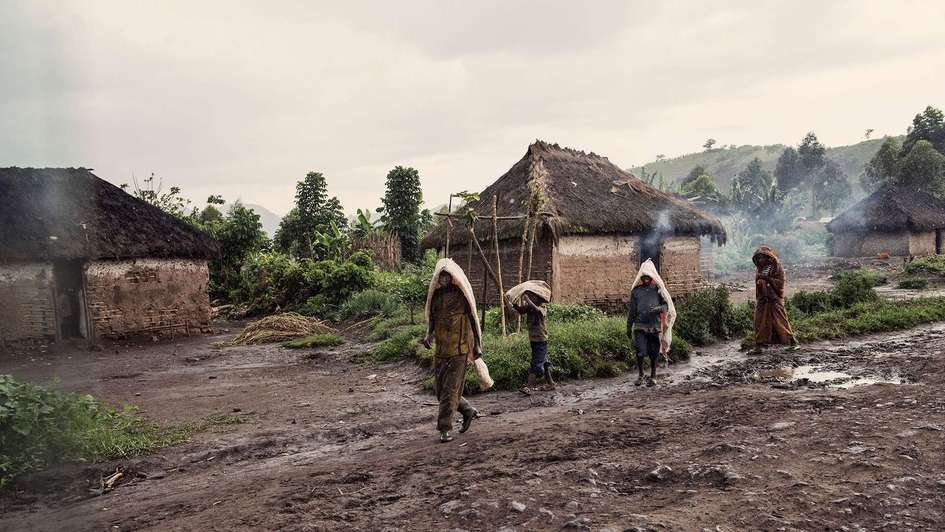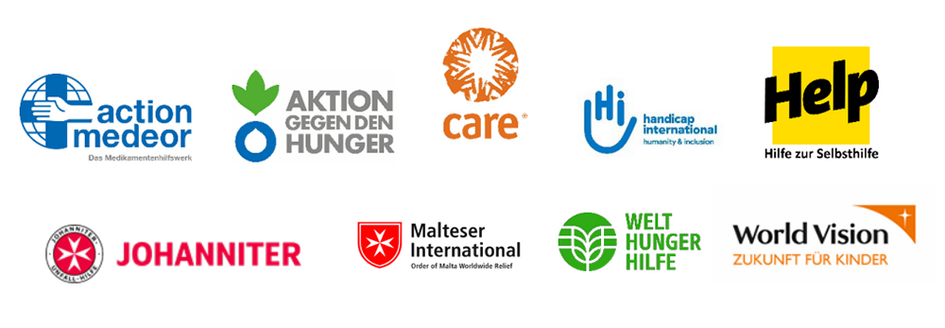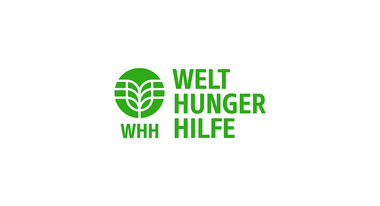DR Congo: Escalation of violence leads to hunger and displacement
Nine organisations are calling for swift action to alleviate the plight of millions of people in eastern Democratic Republic of Congo.

The humanitarian situation in the Democratic Republic of the Congo (DR Congo) is currently worsening dramatically. Decades of fighting have already led to 6.4 million internally displaced persons and 5.3 million refugees. Since autumn last year, a new outbreak of violence has turned another million people into displaced persons in their own country.
In times of decreasing humanitarian aid and development cooperation budgets and less attention on forgotten crises, the organisations action medeor, Action against Hunger, CARE, Handicap International, Help, Johanniter International Assistance, Malteser International, Welthungerhilfe and World Vision are calling for swift action by the international community. Access to food, water, healthcare and protection must be ensured for the people in the DR Congo. The spread of violent conflicts to neighbouring countries must be prevented. A ceasefire, safe humanitarian access to those in need and the demilitarisation of displaced areas are essential. It is equally important to urgently increase financial assistance in order to meet the humanitarian needs. In addition to the acute crisis, people have been experiencing one of the largest hunger crises in the world for years. The organisations warn that this crisis could escalate further in North Kivu.
Malnutrition and diarrhoeal diseases are spreading at an alarming rate
„The situation in Congo is dramatic: we are currently registering over one million refugees in the city of Goma alone“, says Christoph van Edig, Help’s Programme Coordinator for Congo. People are living in makeshift camps often lacking basic infrastructure. There is clearly not enough clean water and sanitary facilities, resulting in the spread of diarrhea disease, cholera and malnutrition. The organisations Help and action medeor are actively helping to prevent or contain diseases such as cholera with disinfectants, hygiene kits, diarrhoea medication and the construction of sanitary facilities.
Johanniter is also working in the camps providing mobile clinics to treat the injured and sick. „Our partner reports patients with serious injuries, mainly caused by gunfire and bombs“, says Anthonin Ngarukiye, Johanniter Head of Mission for Congo.
World Vision and CARE are focusing primarily on women and children. Around 1.1 million children under the age of five, and 605,000 pregnant and breastfeeding women are acutely malnourished. „The number of severely malnourished children under the age of five admitted to our centres has quadrupled since November 2023. In February, we recorded up to 10 new cases of children with severe acute malnutrition per day“, reports Florian Monnerie, Country Director of Action Against Hunger.
In addition, displaced women and girls are often exposed to the risk of gender-specific violence. ‘The trauma faced by vulnerable children and families requires action and greater support,’ reports David Munkley, Head of the World Vision office in Goma. World Vision and CARE are providing life-saving assistance, despite the ongoing fragility, violence and access challenges.
Risk of conflagration for the region
Access to people outside Goma has been limited since the renewed flare-up of violence. Important roads are regularly blocked by fighting between armed groups, making it impossible to deliver humanitarian aid. ‘We demand that transit and unhindered access for humanitarian personnel be guaranteed and that the civilian status of the areas where refugees live be respected,’ says Dr. Inez Kipfer-Didavi, Managing Director of Handicap International Germany (HI). HI transports vital goods for a total of 12 aid organisations working in the Democratic Republic of the Congo.
This is where Welthungerhilfe comes in, supporting not only internally displaced people in Goma, but also countless rural host families and communities. The Country Director of Welthungerhilfe, Manfred Bischofberger, says: „Host families and communities in particular have a key role to play in welcoming displaced people. They need our utmost attention and support, otherwise the humanitarian crisis will continue to spread like a wildfire in the areas that can offer protection“.
As an example, the situation in the neighbouring province of Ituri is getting increasingly worse. Since the beginning of the year, more than 200 violent attacks have already been reported. Around 1.6 million people are currently displaced in Ituri alone. „We have distributed cash, mattresses and blankets to the displaced, are now strengthening medical care and from may onwards will be providing malnourished children with emergency food, among other things“, says Johannes Schildknecht, Malteser International's DR Congo Officer.

Note to editors:
Employees of the aid organisations in the DR Congo are available for interviews. Photo and video material can be made available.
Contact persons for the editorial offices:
action medeor: Dr. Markus Bremers, Press spokesman, Markus.Bremers(at)medeor.de, Tel.: 02156-9788178
Aktion gegen den Hunger: Vassilios Saroglou, Head of Communication, vsaroglou(at)aktiongegendenhunger.de, Tel.: 030 279 099 776
CARE: Kerstin Bandsom, Head of Communication, bandsom(at)care.de, Tel.: +49 170 7448 600
Handicap International e.V.: Huberta von Roedern, Head of Communication, h.vonroedern(at)hi.org, Tel: 0151 - 73 02 32 06
Help – Hilfe zur Selbsthilfe: Sandra Schiller, Press spokeswoman, schiller(at)help-ev.de, Tel.: 0173 - 2790 438
Johanniter-Auslandshilfe: Sandra Lorenz, Head of Communication, sandra.lorenz(at)johanniter.de, Tel.: 0172 - 563 87 40
Malteser International: Katharina Kiecol, Press officer, katharina.kiecol(at)malteser-international.org, Tel: 0221-98227 181
Welthungerhilfe: Simone Pott, Head of Communication, simone.pott(at)welthungerhilfe.de, Tel: 0178-3700129
World Vision: Dirk Bathe, Press spokesman, dirk.bathe(at)wveu.org, Tel: 0175 - 187 95 2






